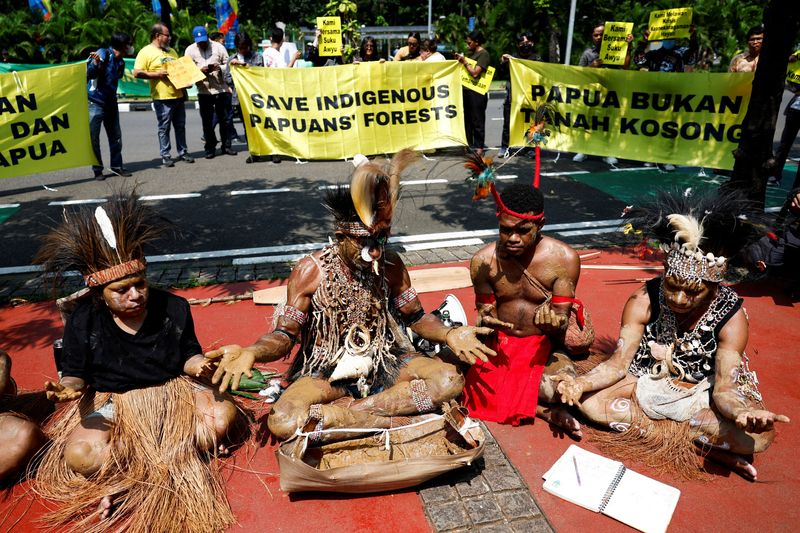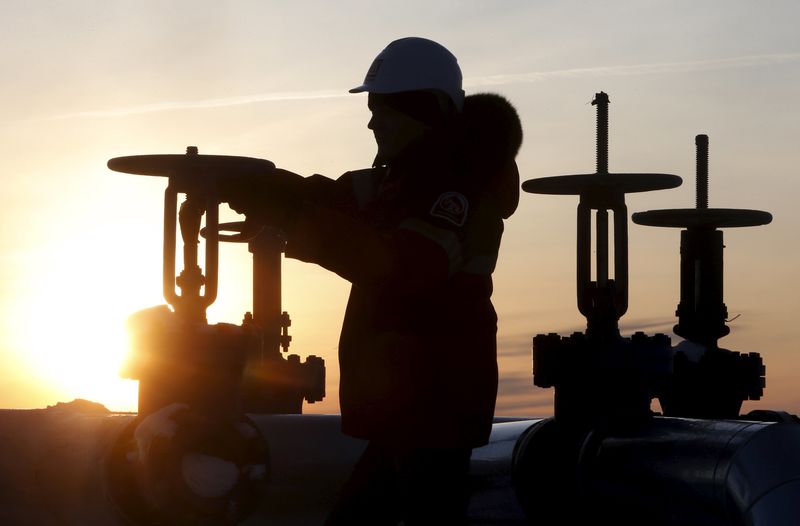By Kate Lamb and Bernadette Christina
JAKARTA (Reuters) – In a jungle of Papua, Indonesia, the Awyu tribe awaits a Supreme Court ruling that will determine whether thousands of hectares of rainforest will be cleared for a huge palm oil concession to be planted atop the graves of their ancestors.
“Birds of paradise, cassowaries… sacred places, and the paths of our ancestors are there,” said Awyu man, Hendrikus “Franky” Woro. “If the graves of our ancestors are removed, we commit a sin against them.”
In three cases decided by the court, the fate of almost 115,000 hectares of forest is at stake, part of the largest collective palm oil block in the world’s largest palm oil exporter, Indonesia.
The 270,000 hectare block, located in Upper Digul in Papua, is divided into seven concessions, three of which are now legally contested.
The court’s ruling, which lawyers expect this month, will set an important precedent in a country that has vowed to both protect a $30 billion export industry and improve governance amid accusations of deforestation and human rights abuses.
“This is the first time that a clear link between indigenous and climate relations has been highlighted in cases like this,” said Difa Shafira of the Indonesian Center for Environmental Law, referring to calculations that clearing the land would save around 23 million tonnes expel. of environmentally harmful carbon dioxide.
Franky represents the Woro clan of the Awyu people, who claim customary ownership of the land, and are fighting against a concession granted to PT Indo Asiana Lestari (IAL) for 36,000 hectares, an area more than half as is big as Jakarta.
A case filed in lower courts in 2023 was dismissed and is now in its final stages in the Supreme Court.
In a statement, IAL said it has obtained all legally required permits and entered into agreements with twelve indigenous clans in the area.
“The Woro clan acts on behalf of individuals and does not represent the clans that lend their support to the company,” the report said.
According to the Internet Archive, the Wayback Machine, IAL was listed as owned by the Whole Asia Group in Malaysia. The website was taken down in June and IAL did not immediately respond to questions about its ownership.
In addition to the IAL case, other Awyu members are also seeking to revoke the licenses of PT Kartika Cipta Pratama and PT Megakarya Jaya Raya, two other palm oil companies that have been granted concessions within the bloc.
Lawyer Eddy Marek Leks, who represents these two firms, said the companies had obtained permits in accordance with all laws.
The court has not announced the date of the verdict, but is expected to rule on all cases simultaneously.
DEFORESTATION
Indonesia is home to a third of the world’s rainforest and in 2011 imposed a moratorium on clearing forests for activities such as palm oil and logging.
The policy has been comprehensive, but some forests are still cut down due to a lack of oversight, regulatory coherence and land classification, including for palm oil.
Palm oil is used in everything from chocolate, soap, fuel and lipstick, and is the most widely used vegetable oil in the world, with almost 60% coming from Indonesia.
Oil’s pervasive link to deforestation was a driving factor behind the European Union’s new regulations banning the import of products linked to forest clearing.
The forest area that Franky wants to protect was classified by the Ministry of the Environment in 2012 as an “other use area”, meaning it can be used for palm oil.
But there now appears to be a change in the official tone.
Environment Minister Siti Nurbaya Bakar, questioned in parliament last week, said that primary forest could not be cut down, and that the government is currently reclassifying intact primary forest as customary forest, or forest intended for indigenous population of the area.

Franky travels to Jakarta with a symbolic piece of land and says the decision will determine the future of his tribe.
“We can live without mining, without palm oil,” he said, “but if we don’t have customary forests, we can’t live.”


